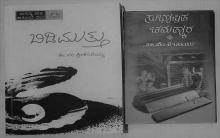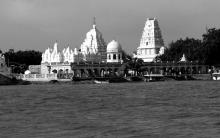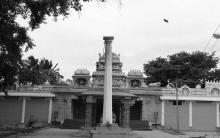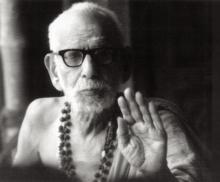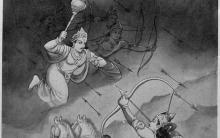The fox said, “A golden child! Listening to the words of this eagle, you’re on the verge of leaving this boy here and going away! Will love and sorrow go away just because you leave? If you abandon him here, later you will definitely feel terrible. Long time ago, Śrīrāma killed Śambhuka and brought a brāhmaṇa boy to life, haven’t you heard? And a dhārmika brought Śvetarāja’s son back to life, don’t you know? Similarly, some siddha or muni or deity might come here upon listening to your wails and shower his compassion.”
Author:hari
ಸಂಸ್ಕೃತಸಾಹಿತ್ಯದ ಚಿರಸುಂದರವಾದ ರಸಮಯಭಾಗಗಳಲ್ಲಿ ಸುಭಾಷಿತಗಳಿಗೆ ಮಿಗಿಲಾದ ಸ್ಥಾನವಿದೆ. ಇವನ್ನು ಭಾವಕವಿತೆಯ ಅತ್ಯುತ್ತಮಪ್ರತಿನಿಧಿಗಳೆಂದು ಕೂಡ ಕರೆಯಬಹುದು. ಜೀವನದ ಎಲ್ಲ ಮುಖಗಳನ್ನೂ ಪ್ರಕೃತಿಯ ಎಲ್ಲ ಪರಿಯ ಸೊಗಸುಗಳನ್ನೂ ಶಾಸ್ತ್ರ-ಕಲೆಗಳ ಅಸಂಖ್ಯಸ್ವಾರಸ್ಯಗಳನ್ನೂ ಸುಭಾಷಿತಗಳು ಸಮರ್ಥವಾಗಿ ಬಿಂಬಿಸಿಕೊಂಡು ಬಂದಿವೆ. ಭಾರತೀಯಸಾಹಿತ್ಯಪರಂಪರೆಯ ಕಥನೇತರಧಾರೆಯ ಸರ್ವೋಚ್ಚಸಾಧನೆಯೇ ಸುಭಾಷಿತವೆಂದರೆ ತಪ್ಪಲ್ಲ. ಇವುಗಳ ಹೂರಣವೆಷ್ಟು ಸವಿಯೋ ತೋರಣವೂ ಅಷ್ಟೇ ಸೊಗಸು. ಇಲ್ಲಿ ಬಗೆಬಗೆಯ ಛಂದಸ್ಸುಗಳ, ಪರಿಪರಿಯ ಅಲಂಕಾರಗಳ, ಕಿವಿಗಳನ್ನು ಜಕ್ಕುಲಿಸುವ ಪದಪುಂಜಗಳ ಲಾಸ್ಯ-ತಾಂಡವಗಳು ಗೌರೀಶಂಕರರ ಸಾನ್ನಿಧ್ಯವನ್ನೇ ಓದುಗರಿಗೆ ತಂದೀಯುತ್ತವೆ. ಹೀಗಾಗಿಯೇ ಸುಭಾಷಿತಗಳ ಆಕರ್ಷಣೆ ಅವಿಚ್ಛಿನ್ನ.
Although he was sixty years old, he was like a thirty-year-old in mind and body – my dear friend, Srinivasamurthy.[1] Even now, whenever I reminisce about him, my eyes well up with tears. Srinivasamurthy grew up amidst comfort and happiness. His father Ramachandra Rao was an Amaldar.[2] Just like Ramachandra Rao, Srinivasamurthy too was handsome, generous, and belonged to a large family. He grew up with the love and respect of his parents.
There once lived an elderly veśyā who went by the name Sītakka in the Guniguntipalya area of Mulubagilu town. She had a foster daughter. I remember her name to be Ratnāsānī. In those days, the Bharatācārya[1] who lived in our town was a vaidika (a Vedic scholar/someone who follows and practices the Vedic lifestyle), Panasakayala Venkatasubbabhatta. I must have been around seven-eight years of age when I saw him.
DVG’s Sri Ramaparikshanam has attempted to examine and analyse the various strands of difficult questions related to Dharma by creating imaginary conversations that Sri Rama has between Ahalya, Sita, Lakshmana and other important characters. Although Sri Rama is a Puranic person, he is placed in the human world and his various accomplishments and sorrows are brought out in this work.
অগ্নিষোমীয় ব্যুহ হল সৃষ্টির কাঠামো, এক অনন্ত বিন্যাস। ভক্ষক-ভক্ষিতের সম্পর্ককে বেঁধে রাখার এক চিরন্তন প্রতিষ্ঠান। এই বিষয়টি উপনিষদ এবং যোগবাসিষ্ঠে আলোচিত হয়েছে। গীতায় কৃষ্ণ এই বিষয়টি সম্পর্কে বলেন যখন তিনি চন্দ্র, সূর্য, অগ্নি, শক্তি, প্রাণরস, চিন্তা ইত্যাদির সাথে নিজেকে অভিন্ন রূপে বর্ণনা করেন (ভ. গী. ১৫.১২-১৫)।
During times of adversity, if one doesn’t despair and stands firm with determination – and added to that if he received divine grace, the adversity soon passes and he is rewarded. Long back, in Vaidiśa-nagara, a boy had died. His relatives were overcome by grief, for he was the only son in the family [who had to take forward the lineage]; drowned thus in sorrow, they took the corpse to the cemetary, placed it on their laps and wept bitterly. An eagle that came there upon hearing their cries said, “How long will you hold on to the corpse? Leave it here and return to your homes.
Studying the life and works of S L Bhyrappa, I strongly feel that the urge to probe into the principle of mystery around is the governing force of his creative imagination. Mystery of nature, birth, death, sexual instinct, history, the intellectual and emotional world of humans—all play a dominant role in shaping him as an individual and litterateur par excellence.


